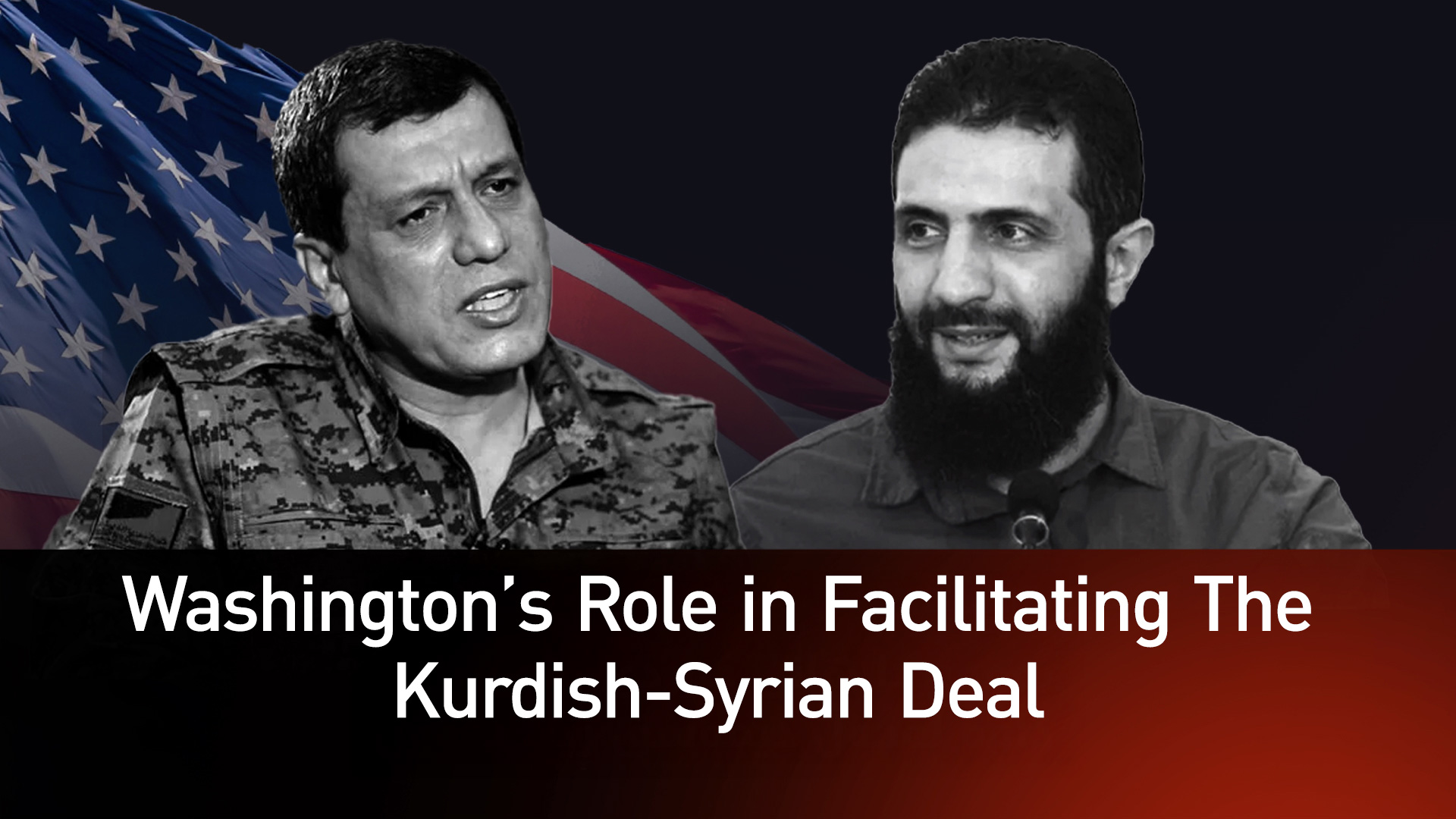U.S. Encouraged Kurdish-Syrian Deal to Stabilize Rojava
U.S. officials encouraged the SDF to resolve its status within Syria’s new political structure, following months of negotiations after the fall of Bashar al-Assad’s

ERBIL (Kurdistan24) – The United States played a key role in encouraging the Syrian Democratic Forces (SDF) to finalize its recent agreement with Syria’s interim government, according to Reuters.
The deal, signed on Monday, aims to reintegrate Kurdish-led forces into state institutions and prevent further conflict in northern Syria (Rojava), particularly amid concerns over the future of U.S. forces in the region.
The agreement is considered a major step toward reunifying Syria, where Kurdish-led forces currently control a quarter of the country. However, key details regarding the military and administrative integration of these forces remain unresolved.
Washington’s Role in Facilitating the Deal
According to Asharq Al-Awsat, reports have emerged suggesting that Washington was not only aware of the ongoing negotiations for some time but may have also played a direct role in facilitating them. The publication revealed that leaks indicate Stephen Whitcomb, the U.S. Presidential Envoy, recently visited Damascus in recent weeks. observers view this move as part of the Trump administration’s efforts to reassure Kurdish allies and avoid a repeat of the chaotic withdrawal witnessed in Afghanistan.
Meanwhile, Reuters reported that U.S. officials urged the Syrian Democratic Forces (SDF) to formalize its status within Syria’s new political framework. This followed months of negotiations after the collapse of Bashar al-Assad’s regime in December.
Reuters further stated that Washington’s involvement was pivotal in securing the agreement, with three U.S. officials confirming that the Pentagon views the deal as a strategic measure to curb further instability in Syria while laying the groundwork for an eventual U.S. withdrawal from the country.
Balancing Pressures and Regional Reactions
The deal comes at a time of increasing pressure on both the Syrian government and the SDF. Sharaa’s administration has been struggling with the fallout of sectarian violence in coastal Syria, where militants aligned with his government were accused of mass killings. Meanwhile, the SDF has been locked in ongoing battles with Turkey-backed Syrian factions that oppose Kurdish autonomy.
Sources close to Damascus explained that the recent sectarian unrest helped accelerate the deal, with both sides viewing a formal agreement as necessary to prevent further escalation.
Turkey’s Position and Future Military Implications
The agreement has also drawn attention from Turkey, which has long opposed the SDF due to its ties to the outlawed Kurdistan Workers' Party (PKK). However, Turkish officials have welcomed the deal, believing it could reduce military tensions between Ankara and Kurdish-led forces.
A Damascus-based diplomat suggested that the Syrian presidency would now work on resolving outstanding issues between the SDF and Turkey, aiming to minimize the risk of further military confrontations.
Uncertainty Over U.S. Troop Presence
The United States has maintained deep ties with Syria’s Kurdish factions for nearly a decade, dating back to the fight against ISIS. However, following Donald Trump’s return to the presidency, discussions about a potential withdrawal of U.S. troops have resurfaced.
Although the Pentagon has begun drafting plans for a potential withdrawal, a U.S. defense official told Reuters on Tuesday that no immediate pullout was planned. The same official revealed that General Michael Kurilla, commander of U.S. Central Command, played a role in encouraging the SDF to finalize the agreement.
“The United States is looking for ways to withdraw from Syria without triggering chaos. The best way to do that is to secure an agreement among Syrian factions,” said Aron Lund, an analyst at Century International, a Washington-based think tank.
Key Challenges in Implementing the Deal
Despite the breakthrough, many details remain unresolved, particularly regarding the integration of SDF forces into Syria’s national military. The SDF has previously stated that its fighters must join as a unified military bloc, while Damascus prefers to absorb them as individual recruits into state security forces.
The agreement also raises questions about border security and the fate of key economic resources, including oil and gas fields in Rojava. Committees have been formed to address these outstanding issues, according to a Syrian government official.
A Turning Point for Syria’s Kurds?
The deal comes after, Abdullah Ocalan, the jailed leader of the PKK, called for his group to lay down arms, a move that could reshape Kurdish military and political dynamics in the Turkey and Syria. However, the SDF has distanced itself from the PKK, stating that Ocalan’s call does not apply to its forces.
Analysts suggest that the U.S. priority is ensuring that the fight against ISIS continues smoothly, with Damascus eventually taking on more responsibility for security operations in the region.
Aaron Zelin, a senior fellow at the Washington Institute for Near East Policy, explained, “This agreement helps unify Syria, which is in the interest of the U.S. since it wants stability and not internal power struggles.”
